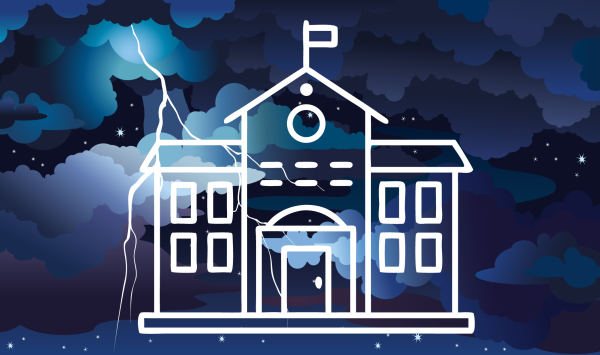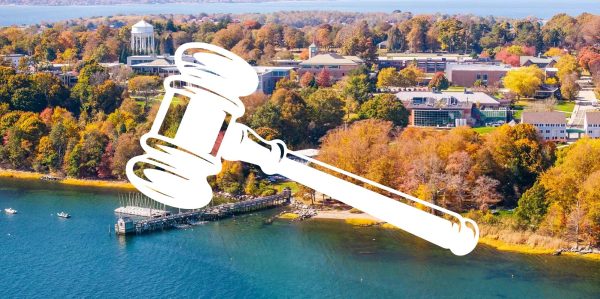Campus community promotes advocacy with Social Justice Month
For the past six years, members of the Roger Williams University campus community have organized Social Justice Week. This year, however, they have increased the programming to span the entire month of October.
The official social justice celebrations began in 2012, when Autumn Quezada de Tavarez, associate professor of history, and Laura D’Amore, associate professor of American studies, spoke to the provost about the university’s need for a stronger social justice focus. At the time, students on campus were pushing social justice issues because of events and movements that were happening around the nation.
“This hasn’t just come out of nowhere. It’s been building and, as you can see, the student body is so vocal and strong,” Quezada de Tavarez said. She hopes that next year might even end up becoming Social Justice Year.
After putting out the call for interested individuals to be a part of the university’s Social Justice Fair, Quezada de Tavarez was overwhelmed with not only the number of responses, but also the variety of responses, adding that most of the people looking to become involved had never done programming under the social justice umbrella before.
“If you look at how to define social justice, this is about looking at issues related to injustices and access,” Quezada de Tavarez said, elaborating on the sometimes misunderstood term. The issues could be related to an individual’s access to a quality education, housing, voting, food, and more.
“I think students will gain more education and knowledge around social justice issues and some of the issues that minoritized students face,” said junior Phoebe Thaler. “On the flip side, [the goal is] for students of privilege to learn how to use their privilege to bring up marginalized voices and support students from marginalized groups.”
“It’s amazing to be one of many leaders on campus within this umbrella, and my hope is that eventually students can earn a minor in social justice, that we will have an actual institute or center for it where we will become known for this kind of teaching and activity,” Quezada de Tavarez said. “It makes so much sense to be connected to Roger Williams, who wanted liberty of consciousness, the freedom to think and to live in a just world.”
It was through this desire to increase the social justice and advocacy focus on campus that the university’s Social Justice Coalition, housed under the office of Chief Diversity Officer Ame Lambert, was founded.
At the beginning of the current academic year, two student leaders, Thaler and Ava Binns, spoke with various faculty and members of the administration about creating a coalition independent of clubs and organizations.
The Social Justice Coalition intends to unite different groups of campus that push forward social justice efforts and support minoritized students.
The members of the coalition are student leaders in various social justice groups, including: Africana Student Coalition (ASC), FEM Society, Foundation for International Medical Relief of Children (FIMRC), Hillel, International Ambassadors, Multicultural Student Union (MSU), P.E.A.C.E. Program, Roger for Refugees, Sexual Advocacy for Everyone (SAFE), Women’s Collective, and the Zine Team.
In the future, the Social Justice Coalition hopes to continue to help plan a joint social justice calendar.
For the 2017 academic year, the events include social justice advocacy from many different inter sectional areas of interest, including topics relevant to the LGBTQ community, environmental justice, racial identity, gender equality, and science.





